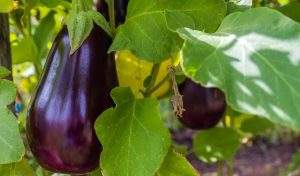Gardening is a great way to get outside, enjoy some fresh air, and get your hands dirty.
It can also be a great way to save money on groceries. If you’re looking for ways to cut down on your grocery bill, gardening is a great place to start.
Here are seven tips to help you garden cheaply.
Gardening can be a very expensive hobby. But it doesn’t have to be! With a little bit of creativity and know-how, you can create a beautiful garden without breaking the bank. Follow these tips and you’ll be well on your way to creating a stunning garden that won’t cost you an arm and a leg.
Start small
Don’t try to grow an entire field of crops in your first year of gardening.
Start with a small plot of land, or even just a few pots on your porch or balcony.
You can always expand your garden as you get more experience.
Use what you have
There’s no need to go out and buy all new gardening supplies every year.
If you have old pots or containers around the house, you can use those for your plants.
Or, if you have some extra space in your yard, you can start a compost pile to fertilize your soil naturally.
Shop around for seeds and plants
You don’t have to buy all of your seeds and plants from the garden center at the local big box store.
Shop around online or at smaller, independent nurseries for deals on plants and seeds.
You can also look for plant sales at the end of the season when nurseries are trying to clear out their inventory.

Use reclaimed materials in your garden
Reclaimed materials can add character and interest to your garden while also saving you money.
Look for materials such as bricks, stones, or even wood that you can use in your garden.
You can often find these materials for free or very cheap at construction sites, garage sales, or even online classifieds websites.
Join a community garden
Community gardens are becoming more popular in cities and towns across the country.
If you don’t have enough space for a garden of your own, you can join one of these shared gardens.
Not only will this give you access to some space to garden, but it’s also a great way to meet new people and learn from more experienced gardeners.
Barter for plants and seeds
Do you have something that another gardener might want?
Maybe you have extra zucchini seeds from last year or some extra bags of potting soil that you didn’t use.
See if there’s anything you can trade with other gardeners in order to get what you need for this year’s garden.
Use household items as gardening tools
You don’t need fancy gardening tools to get started – a spoon, fork, or even an old kitchen knife can work just as well.
Repurpose old containers as planters
Recycling old containers is not only good for the environment, but it’s also easy on your wallet.
Just make sure to punch some holes in the bottom for drainage.

Compost kitchen scraps
A great way to fertilize your plants is to compost your kitchen scraps.
Coffee grounds, eggshells, and fruit peels are all perfect for composting.
Not only is it free, but it ‘s also environmentally friendly.
Collect rainwater
Rainwater is free and it ‘s actually better for plants than tap water.
So why not collect it and use it to water your garden?
All you need is a few buckets or barrels placed around your yard to catch the rainwater.
Research which plants are best for your area
Some plants will do better in certain areas than others because of the climate or the type of soil that is available.
For example, if you live in an area with hot summers and mild winters, you might want to consider planting tomatoes, peppers, watermelons, or cantaloupes.
But if you live in an area with cold winters and cool summers, cabbage, broccoli, and kale might be better options for your garden.
General tips:
One way to save money while gardening is by using mulch.
Mulch is material (usually organic) that is spread around plants to conserve moisture and suppress weeds.
This can be things like leaves, grass clippings, straw, wood chips, or even newspapers. Using mulch in your garden can help reduce watering needs by up 30%.
Another way to save money while gardening is by saving seeds from year-to-year.
Many vegetables will produce seeds that can be used next year if they are allowed to mature on the plant before being harvested.
Tomatoes, beans, peas, peppers, and squash are all examples of vegetables where the seeds can be saved and used again next year.
Final Words
Gardening is a great way to enjoy some time outdoors while also saving money on groceries.
By starting small and using what you have available,you can gradually expand your garden without breaking the bank.
And by bartering with other gardeners, joining a community garden, and doing some research, you can further reduce the costs associated with gardening.






